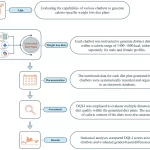Kuopio, Finland — Insulin resistance could significantly elevate the risk of aortic stenosis, a common heart valve disease, in men over 45, according to a groundbreaking study published Wednesday in the journal Annals of Medicine. The findings may pave the way for innovative treatment approaches for aortic stenosis, a condition that can lead to life-threatening heart failure if untreated.
Aortic stenosis is characterized by the narrowing or incomplete opening of the aortic valve, which restricts blood flow from the heart to the rest of the body. Over time, the valve can thicken and stiffen, forcing the heart to work harder and raising the risk of severe complications.
Researchers at Kuopio University Hospital, Finland, identified several biomarkers linked to insulin resistance in men with aortic stenosis. These included fasting insulin levels, insulin measured at 30 and 120 minutes post-meal, proinsulin, and serum C-peptide. The study noted that these biomarkers remained significant predictors of the condition, even after accounting for other risk factors such as body mass index (BMI), high blood pressure, or diabetes.
Understanding Insulin Resistance and Heart Health
Insulin resistance occurs when the body becomes less responsive to insulin, prompting higher-than-normal insulin production to regulate blood sugar levels. Dr. Johanna Kuusisto, the study’s lead author, emphasized the importance of this discovery, stating, “This novel finding highlights that insulin resistance may be a significant and modifiable risk factor for aortic stenosis.”
With insulin resistance becoming increasingly prevalent, Dr. Kuusisto suggests that improving metabolic health could offer a new strategy to lower the risk of aortic stenosis and enhance cardiovascular health in aging populations.
Key Findings and Implications
The study followed 10,144 Finnish men aged 45 to 73 who were free of aortic stenosis at the start of the research. Over an average of 10.8 years, 116 participants (1.1%) were diagnosed with the condition.
Importantly, the biomarkers for insulin resistance remained strong indicators of aortic stenosis risk, even when men with diabetes or aortic valve malformations were excluded from the analysis. This underscores the independent role of metabolic health in developing the disease.
Next Steps: Prevention and Lifestyle Modifications
While weight control and regular exercise are known to improve insulin sensitivity, further research is needed to determine how these measures can specifically help prevent aortic stenosis. “Managing metabolic health could be a promising avenue to reduce the risk of this condition,” Dr. Kuusisto said.
The findings highlight the importance of early intervention and lifestyle modifications to address insulin resistance and protect cardiovascular health, especially in older men.
This study contributes to a growing body of evidence linking metabolic health to heart disease, opening doors for both prevention and treatment strategies in at-risk populations.











